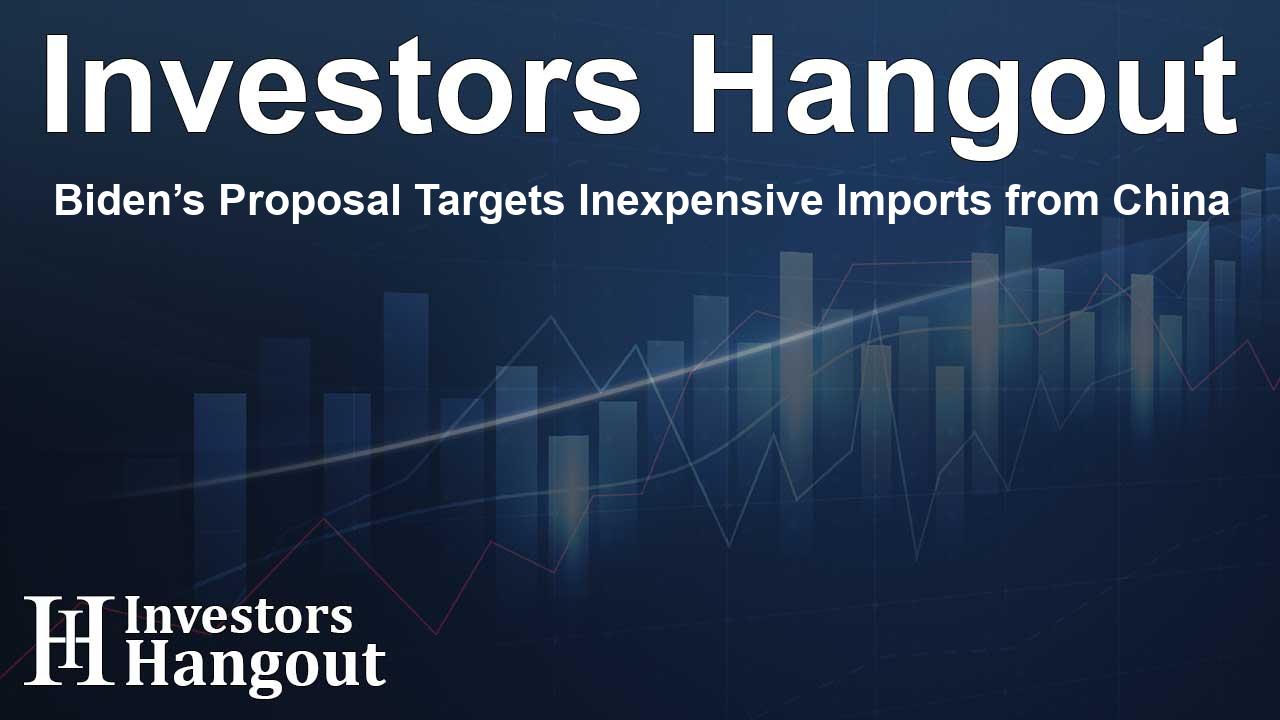Biden’s Proposal Targets Inexpensive Imports from China

Biden's Proposal to Address Low-Cost Imports
The Biden administration is taking significant steps to regulate the influx of low-cost goods from China, notably affecting popular retailers like Temu and Shein.
Understanding the Proposed Changes
Under a new rule, the administration aims to eliminate the exemptions that allowed imports valued under $800 to bypass tariffs. This initiative seeks to impose taxes on imports that fall under specific sections of the Trade Act and the Trade Expansion Act.
Issues with De Minimis Exemption
For years, the de minimis exemption has facilitated a massive increase in shipments from China—growing from 140 million to over 1 billion annually. The U.S. government outlines that this loophole has allowed not only significant amounts of low-cost retail goods to flood the market but also products that may pose safety concerns, such as illicit drugs.
Impact on Domestic Economy
This crackdown aims to protect domestic industries and create fairer competition for local workers. By imposing limits on these inexpensive imports, the administration is attempting to provide a boost to American manufacturers who face challenges in competing with low-priced Chinese products.
Effects on Companies Like Temu and Shein
The removal of the de minimis exemption poses challenges for companies who thrive on competitive pricing. Businesses like Temu and Shein may now face new hurdles, including additional tariffs that could lead to higher prices for consumers.
New Regulatory Standards
The proposed changes also introduce new compliance measures. Importers may need to provide detailed classifications and information about their shipments, ensuring better oversight for goods entering the market.
Geopolitical Context and Economic Considerations
This regulatory shift is notable given the current geopolitical climate, as the U.S. aims to reduce dependence on Chinese goods while addressing domestic manufacturing concerns. The U.S. has continually sought to innovate in sectors like electric vehicles, which are vital for economic growth.
Consumer Reactions and Future Implications
As consumers adjust to potential price increases, the regulatory changes may lead to a shift in buying habits. Supporters of the measures argue that this is a necessary step for long-term economic health, while critics fear it might lead to inflated costs for everyday items.
Frequently Asked Questions
What is the de minimis exemption?
The de minimis exemption allows goods valued at $800 or less to enter the U.S. without incurring tariffs.
How might Biden's proposal impact consumers?
The proposed tariffs on low-cost imports could lead to higher prices on products from companies like Temu and Shein.
Why is the U.S. government focusing on imports from China?
The U.S. government aims to protect domestic industries and reduce reliance on foreign products, especially from China.
What new standards will be implemented?
New regulations will require detailed classifications and importers to provide necessary shipment information.
What are the implications for U.S.-China trade relations?
This proposal may strain trade relations as both nations navigate economic independence and competition.
About Investors Hangout
Investors Hangout is a leading online stock forum for financial discussion and learning, offering a wide range of free tools and resources. It draws in traders of all levels, who exchange market knowledge, investigate trading tactics, and keep an eye on industry developments in real time. Featuring financial articles, stock message boards, quotes, charts, company profiles, and live news updates. Through cooperative learning and a wealth of informational resources, it helps users from novices creating their first portfolios to experts honing their techniques. Join Investors Hangout today: https://investorshangout.com/
Disclaimer: The content of this article is solely for general informational purposes only; it does not represent legal, financial, or investment advice. Investors Hangout does not offer financial advice; the author is not a licensed financial advisor. Consult a qualified advisor before making any financial or investment decisions based on this article. The author's interpretation of publicly available data shapes the opinions presented here; as a result, they should not be taken as advice to purchase, sell, or hold any securities mentioned or any other investments. The author does not guarantee the accuracy, completeness, or timeliness of any material, providing it "as is." Information and market conditions may change; past performance is not indicative of future outcomes. If any of the material offered here is inaccurate, please contact us for corrections.